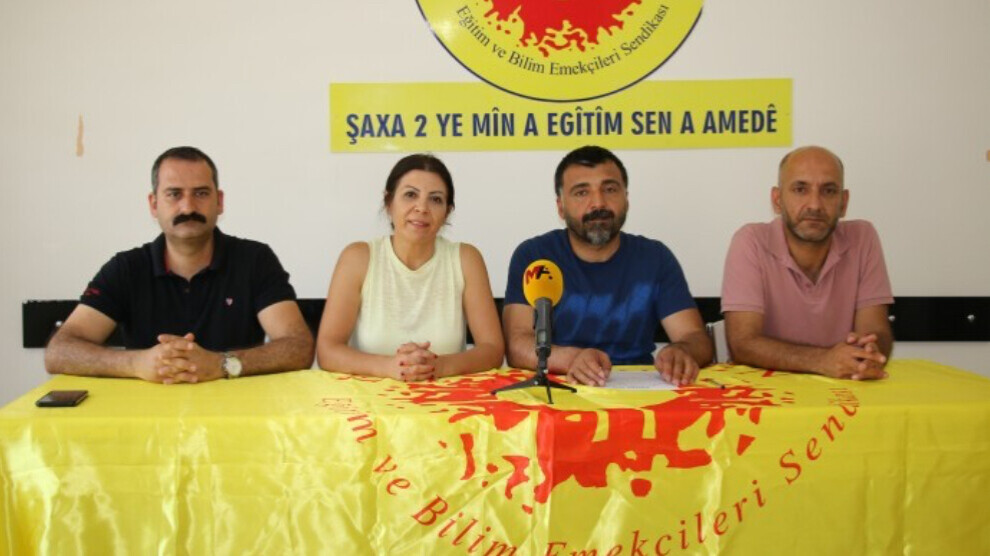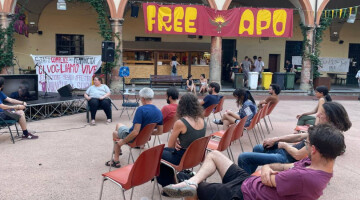The Diyarbakır and Izmir branches of the Education and Science Workers' Union, better known as Eğitim-Sen, prepared an assessment report for the 2021-2022 academic year. The report was announced in a press conference at Eğitim Sen Diyarbakır Branch No. 2 office.
The Co-Chair of Diyarbakır Branch No. 2 office, Hasan Çıtrık, revealed that 470,099 students received education in private or public schools in Diyarbakır in 2021-2022.
Addressing the problem of education in the mother tongue, Çıtrık stated that students who cannot receive education in their mother tongue fail at schools and are excluded from the educational system.
“It is known that hundreds of thousands of students who are deprived of their right to receive education in the mother tongue in our region face an unequal educational life compared to their peers, and their life is affected psychologically, sociologically and pedagogically. Offering elective courses instead of education in the mother tongue at all levels of education is far from sincerity,” Çıtrık said.
“The Egitim Sen is determined to continue to fight for the right to public, scientific, democratic, secular and mother-tongue education in an education system which is increasingly pulled into market relations and based on nationalism, discrimination and the exploitation of faith rather than science and secularism, from preschool to university,” he added.
The Izmir Branch of Egitim Sen also announced its 2021-2022 Education Assessment Report.
“The ethnic, linguistic, cultural and religious diversity in the country is hardly reflected in the education programs and textbooks. No steps have been taken to eliminate the disadvantages of girls, refugee children, children with different mother tongues, children with disabilities and children under temporary protection, the report said.















